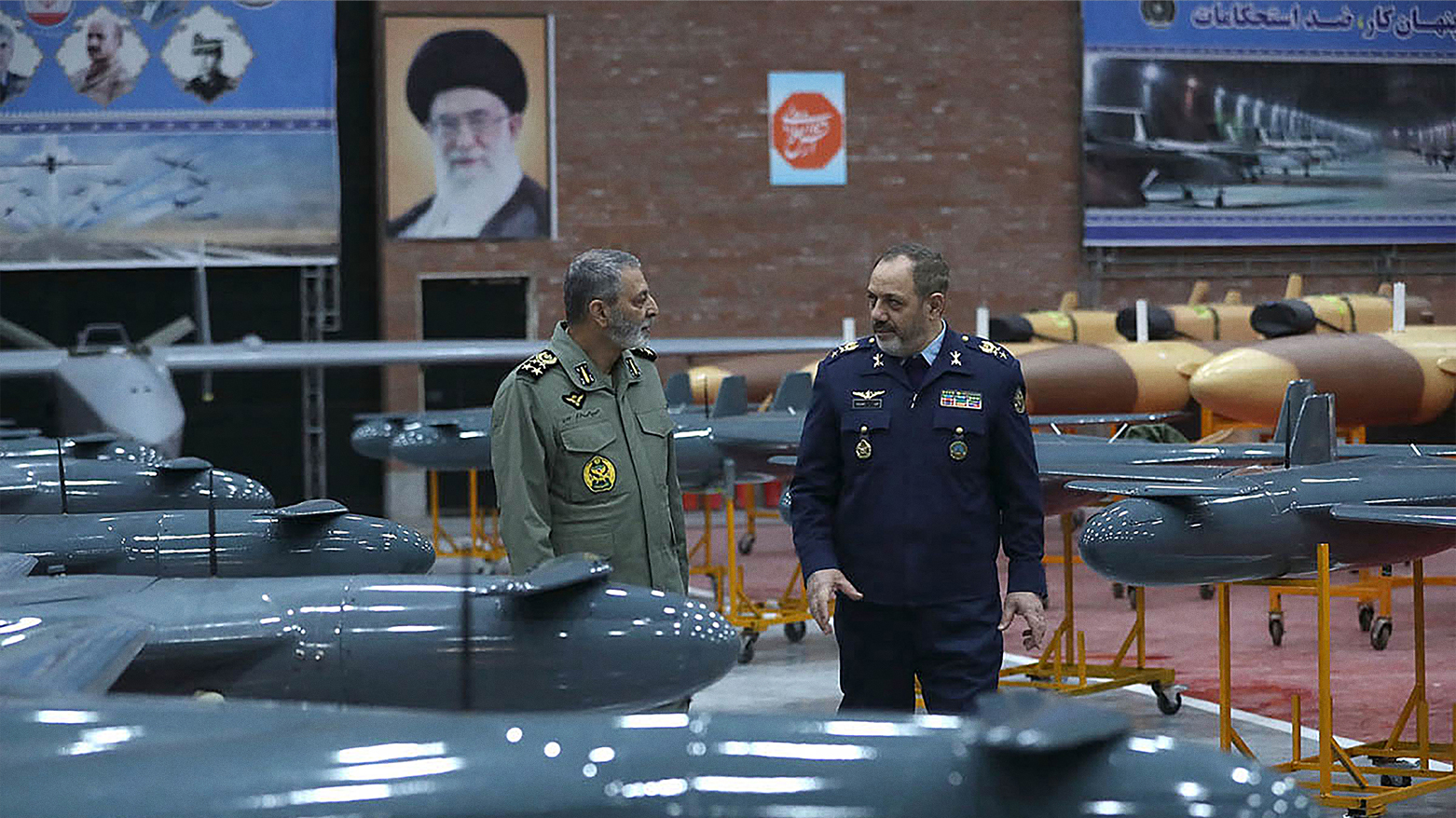Iran's Defense Minister to U.S.: Threats Will Be Met with Force
Nasirzadeh warned that any act of aggression from the United States or Israel would result in retaliatory strikes on “their interests, bases, and forces—wherever they may be and whenever it deems necessary.”

By Kamaran Aziz
ERBIL (Kurdistan24) — In a response to recent remarks by the U.S. Secretary of Defense, Iranian Minister of Defense and Armed Forces Logistics Brigadier General Pilot Aziz Nasirzadeh has issued a stern warning against the use of threatening rhetoric toward the Islamic Republic. His comments were published on Sunday via the Iranian government’s official information portal, as cited by the Islamic Republic News Agency (IRNA).
Nasirzadeh directly addressed what he described as contradictory behavior by Washington. “Unfortunately, we are witnessing a situation where American officials, on the one hand, claim sincerity and a willingness to negotiate, but on the other hand, some American officials repeatedly and through various means threaten the Islamic Republic with military attack,” he said.
While emphasizing that political diplomacy is being intelligently pursued by Iran’s civilian leadership, Nasirzadeh urged caution among American policymakers. “I advise those issuing threats, especially the newly appointed U.S. Secretary of Defense, to study the 40-plus-year history of the [Islamic] Revolution. If they do, they will realize that one cannot speak to the Islamic Republic of Iran in the language of threats.”
Reaffirming Iran’s longstanding defensive doctrine, the Defense Minister declared that the Islamic Republic has not initiated any conflicts in recent decades and does not intend to launch future wars. “But if Iran is attacked or war is imposed upon it, we will respond with strength,” he stated.
Nasirzadeh warned that any act of aggression from the United States or Israel would result in retaliatory strikes on “their interests, bases, and forces—wherever they may be and whenever it deems necessary.” He added that Iran’s military readiness spans land, air, and sea domains.
The statement followed a sharp warning from U.S. Secretary of Defense Pete Hegseth, who posted on X: "Message to IRAN: We see your LETHAL support to The Houthis. We know exactly what you are doing. You know very well what the U.S. Military is capable of — and you were warned. You will pay the CONSEQUENCE at the time and place of our choosing."
Message to IRAN:
— Secretary of Defense Pete Hegseth (@SecDef) May 1, 2025
We see your LETHAL support to The Houthis. We know exactly what you are doing.
You know very well what the U.S. Military is capable of — and you were warned. You will pay the CONSEQUENCE at the time and place of our choosing.
In a significant development likely to heighten regional and global concern, Nasirzadeh also revealed that Iran had successfully tested a new generation of ballistic missile.
Drawing on operational insights from Iran’s “True Promise 1 and 2” strikes—believed to refer to recent missile responses in regional conflicts—he noted improvements made to the missile’s accuracy, guidance, and resilience against electronic warfare.
“This missile identifies its specific designated target among multiple targets, strikes it with zero deviation—not even by a meter—and without relying on GPS navigation systems,” he said. The missile was launched from over 1,200 kilometers away and, according to Nasirzadeh, withstood heavy electronic jamming during its trajectory.
The test reportedly demonstrated capabilities designed to penetrate layered air defenses and resist signal interference—features that signal growing technical sophistication in Iran’s missile arsenal. Nasirzadeh emphasized that if a war were imposed on Iran, “weapons that have not yet been used will be deployed,” referencing Iran’s large stockpile of missiles stored in its widely reported “underground missile cities.”
Turning to regional dynamics, the Defense Minister denied any Iranian involvement in a recent U.S. aircraft incident in the Red Sea, attributing the event solely to the movements of an American warship. “Yemen is an independent country and makes its own decisions. This matter has no connection to the Islamic Republic of Iran,” he said.
Nasirzadeh reiterated Tehran’s position on regional non-aggression while making clear that any U.S. bases in neighboring states would be considered legitimate military targets in the event of an attack on Iran. “We have no hostility toward our neighboring countries—brotherhood prevails among us,” he added.
He concluded by highlighting Iran’s domestic military capabilities, stating that the country has reached full maturity in the production of both solid- and liquid-fuel missiles. Lessons from previous operations, he asserted, are being incorporated into ongoing weapons development and mass production initiatives.
The remarks underscore Tehran’s intent to deter external threats through a mix of political restraint and overt military signaling, as tensions between Iran and the United States remain high amid a broader backdrop of geopolitical instability in the Middle East.